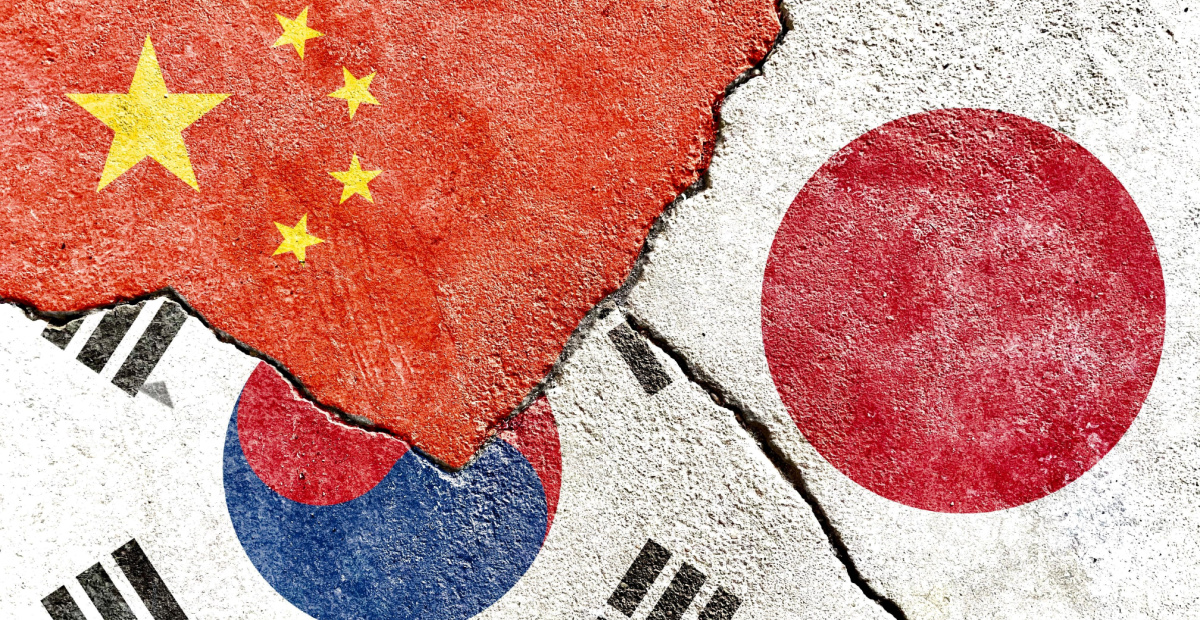North Asian equities catching a ‘welcome contagion’

After multiple ‘false dawns’, equities investors in Japan, Korea and China can likely look forward to a value uplift for their stock holdings, as major corporate governance reforms across the region begin to take hold, Asia-specialist investment analysts have argued.
Will Main, head of Asia, and Howard Ho, portfolio manager Asian equity income at Maple-Brown Abbott, believe these reforms will deliver a “multi-year tailwind” for North Asian equities.
Korean and Chinese equities, in particular, are trading at deeply discounted valuations they say, with such positive developments “far from priced in”.
“As 2024 unfolds, we think investors will start to recognise this disconnect and send equity prices higher.”
According to the pair, these emerging themes will be built into Maple-Brown Abbott’s portfolios over time.
Japan in renaissance, SK follows suit
For Main and Ho, Japan’s more well-established – and long-stuttering – equities market is currently experiencing a “renaissance”, driven by local regulators’ wholesale corporate governance reforms.
“After a multi-decade period of stagnation following the burst of the bubble economy during the late 1980s, its equity market recently hit new highs,” the pair wrote.
Japan’s equities market is responding well to corporate reforms, with the MSCI Japan index, they note, up around 29% through 2023. Another 14% has been added in the year to 29 February 2024.
Following more modest corporate governance reforms in 2014 and 2015, the Tokyo Stock Exchange (TSE) took a more direct approach in early 2023, requiring listed companies to disclose plans to improve profitability and company valuations. This latest reform appears to be having a tangible impact on the equities market.
“The intention is to improve capital allocation and overall valuations and we believe the [results] are clear: corporate Japan is responding, and share prices are rising,”
When Japan acts, South Korea often follows. Main and Ho recognised the neighbouring economies’ “intertwined (and complicated)” histories, with commonalities in their corporate structures and government support models, and key rivalries across a range of industries – from automobile and shipbuilding to semiconductor manufacturing.
Echoing Japan’s corporate disclosure reforms, South Korea’s Financial Services Commission (FSC) announced its own ‘Corporate Value-Up Program’ which has aimed to address the discount that many Korean companies trade at relative to their international peers.
Among these initiatives include tax incentives, increased demand for transparency in listed entities’ disclosure of corporate value enhancement plans, and plans for the creation of a dedicated index and an exchange-traded fund (ETF) for companies actively participating in the program.
For the Maple-Brown Abbott analysts, the potential for value-add of the FSC’s initiatives “is even larger than in Japan”. Citing data from investment banking giant Jeffries, the analysts note that the entire Korean market is valued at around 1.0 price-to-book with around 69% of all companies currently listed trading below book value (versus around 47% in Japan).
“It is early days in Korea’s path to closing the discount and important details around tax breaks and other incentives remain outstanding,” Main and Ho said.
“Attracting participation from key companies (especially chaebols) as well as developing a robust monitoring framework to ensure genuine improvement will be central to the success of the program.”
China on its own reform path
Meanwhile, China’s recent regulatory reforms for state-owned enterprises, including SASAC3, are, according to Main and Ho, having a positive effect on capital allocation and driving share prices higher.
SASAC3, introduced by the state assets regulator in January 2023, requires state-owned enterprises to use return on equity (ROE) as a metric for management performance. A January 2024 update to the SASAC will demand management teams pay more attention to their market value, a factor which will also be added to their performance metrics.
Main and Ho note that many state-owned companies maintain excess cash on their balance sheet, which is “depressing return on equity”.
“The easiest way for management teams to hit these targets is to pay out more of this cash,” the pair wrote.
“China Mobile is a good example here, where after its most recent results it increased its payout ratio as well as resumed share buybacks.”












Dixon Financial Advisers were just doing their jobs. Similar to the below. Licensed Financial Planners love & care about their…
Yeah, it'll get there no doubt... 25,000 - unqualified hacks peddling product 5,000 - fully qualified advisers
How much financial damage caused ? How many client losses ? So ASIC how come Dodgy Dixon’s have had no…
The evidence is mounting.
It is not the fault of advisers who care and do right by their clients. ASIC is culpable for failing…